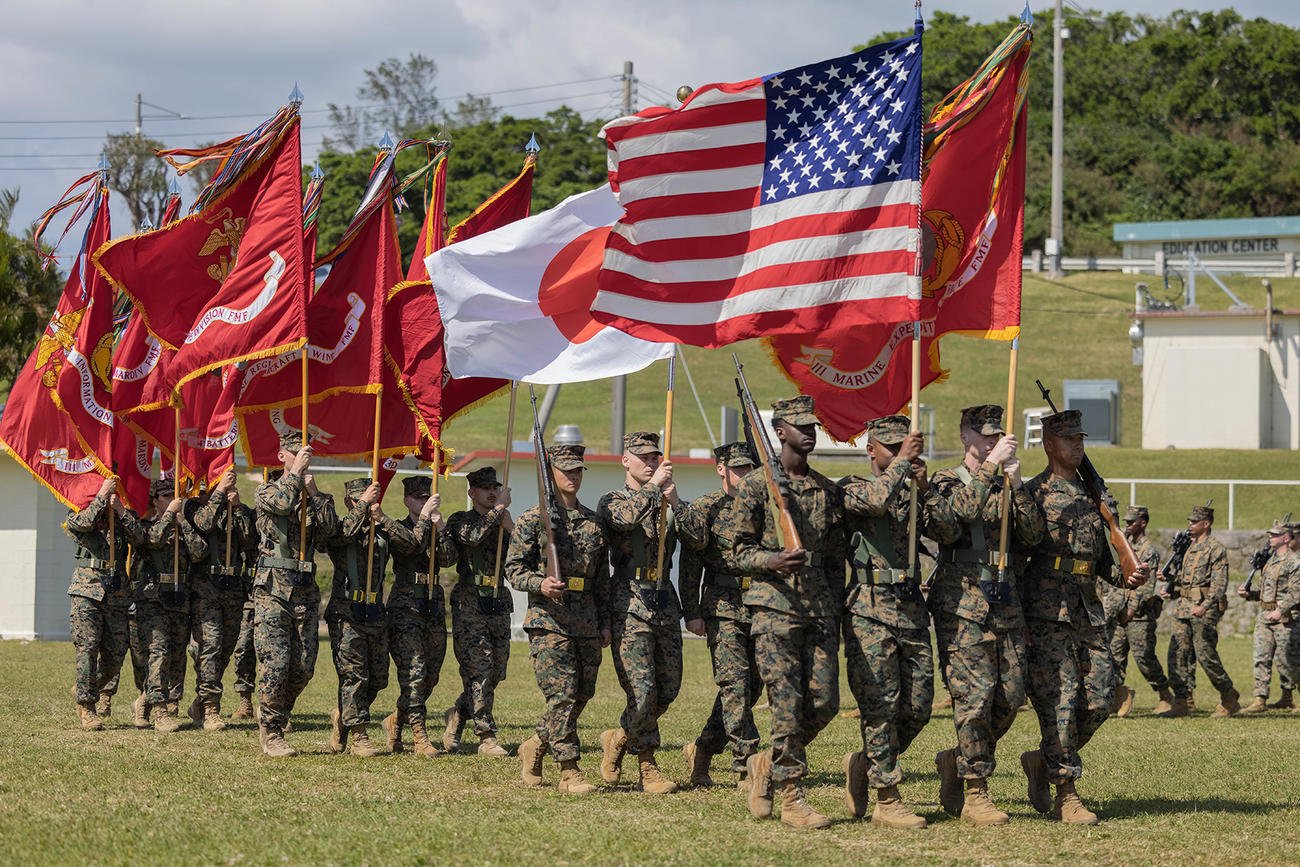
After a spate of reports alleging misconduct, some Marines stationed in Japan have been ordered to adhere to a stricter leave policy, according to a new order signed by the commanding general of III Marine Expeditionary Force and Marines Forces Japan, or MARFORJ.
The new policy, which was issued by Lt. Gen. James Bierman Jr. on Dec. 11, requires all sergeants and below to carry liberty cards while on short, authorized periods of leave — also known as liberty. It also requires all corporals and below to take a “liberty buddy” with them when drinking off-post, a policy that was nixed last year.
The order follows reports of alleged Marine misconduct on the island, including a lance corporal assaulting an elderly Japanese woman in November, according to Stars and Stripes, which first reported the liberty change and misconduct. The publication also said another service member was involved in a fight in Iwakuni that same month.
Read Next: What Does the Space Force Do? 4 Years After Its Birth, Glimpses of the Service’s Mission Emerge
“Professional and responsible conduct on liberty reinforces to friends and potential adversaries alike that the service members of MARFORJ are disciplined, reliable, ready, and take care of each other.” the policy said. “Misconduct negatively impacts readiness, how friends and adversaries view MARFORJ, and erodes support among local populations and governments at a critical time.”
The liberty buddy program, as it is called in the new order, requires that service members E-4 and below be accompanied by either another active-duty service member, Defense Department civilian, command-recognized spouse or another adult family member while consuming alcohol off-post.
The policy also broke down liberty rules into three tiers. Marines in tier three, the strictest contained in the order, are prohibited from off-post leave, cannot consume alcohol, and must return to their home or installation by 10 p.m.
Marines assigned to tier two may not buy or drink alcohol off-post unless it is consumed in the service member’s off-base quarters. These personnel can drink alcohol aboard military installations, but have an 11 p.m. curfew.
Tier one, which all MARFORJ personnel are assigned to by default and is unchanged from last year’s policy, outlines that, regardless of age or rank, drinking off-base between 1 a.m. and 5 a.m. is forbidden unless in a personal residence or hotel room.
Marines at the paygrade of E-5 and below assigned to any tier must carry a card identifying which tier they are assigned to.
Commanders can assign Marines tiers based on their merit, personal conduct and perceived trustworthiness without requiring administrative action or legal review, according to the policy. The specific reasoning must be put in writing, however, and commanders can direct a requirement for a liberty buddy at their discretion.
“MARFORJ members take care of one another and should make every reasonable effort to prevent inappropriate or illegal activities by other service members,” the policy said. “If service members are aware of such misconduct, they must directly report the information to their chain of command or other appropriate organization/office as soon as possible.”
III Marine Expeditionary Force, or III MEF, did not respond to a request for comment regarding the policy or questions asking whether it was tightened due to reports of alleged misconduct.
At the highest levels of government, the alliance between Japan and the United States is being bolstered in the face of increased Chinese military presence in the Pacific. According to Reuters, Japan is undergoing its greatest military overhaul since World War II, and the United States has worked hand-in-hand with the country to reinforce its southern island chain to contain China’s influence in the region.
Yet the Marine presence in Japan has often been a point of contention for residents of the island nation and local leaders, going back decades. Earlier this year, thousands of protesters gathered near Kadena Air Base in Okinawa to challenge the U.S. presence there, according to Axios. Those concerns follow years of the Marine Corps having an enormous military presence on the island; Okinawa hosts more than 70% of all U.S. military facilities in the country.
In November, the Marine Corps redesignated a Japan-based unit into a Marine littoral regiment capable of quickly responding to threats in the Indo-Pacific. The announcement was part of an agreement with the Japanese government that meant no new units would be added to Okinawa.
Related: Okinawa-Based Marine Regiment Set to Rebrand as Littoral Unit Next Month After Deal with Japan









